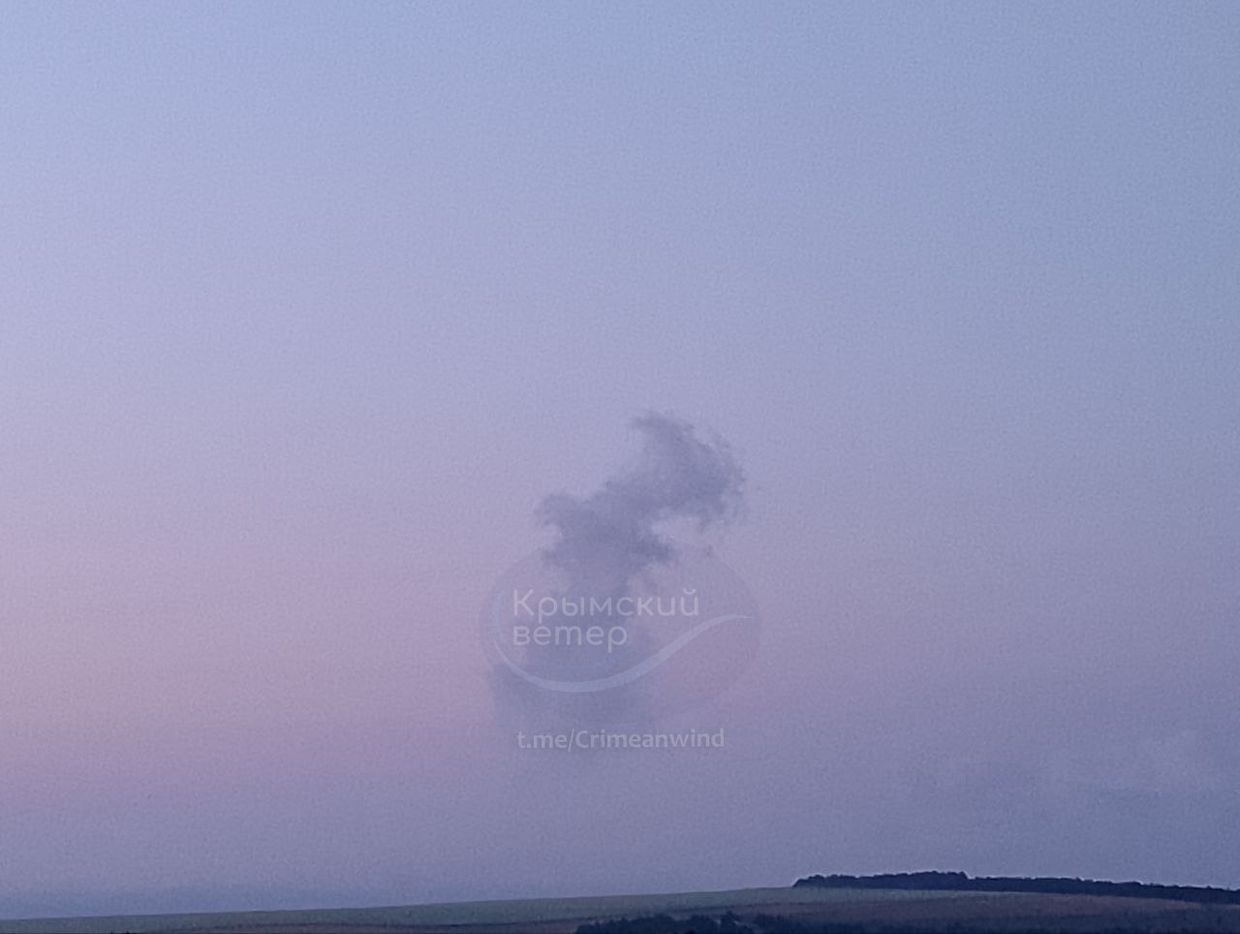Le conseil des prud'hommes ordonne au PSG de payer 60,9 millions d'euros à Kylian Mbappé
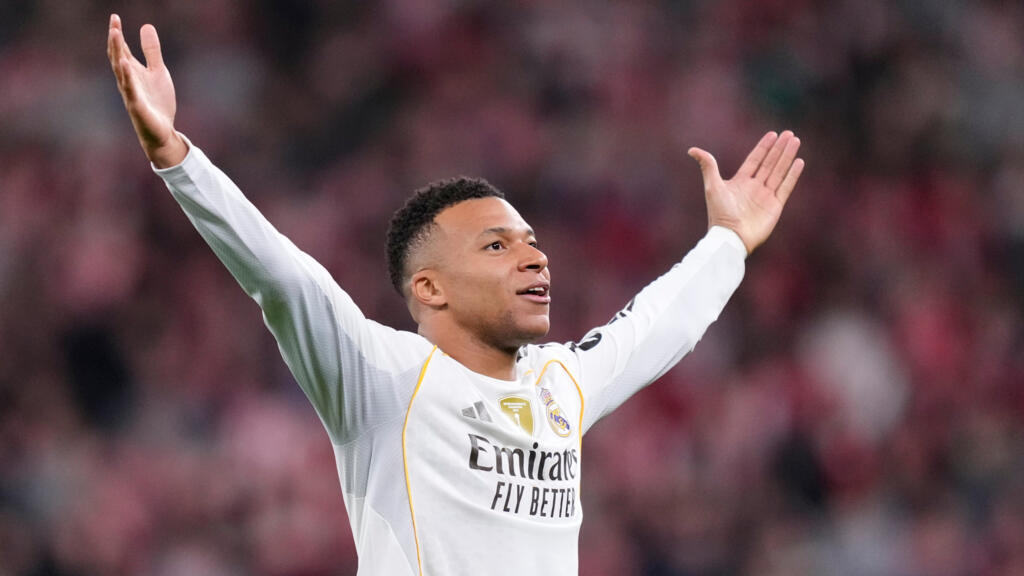




© Gonzalo Fuentes/Reuters
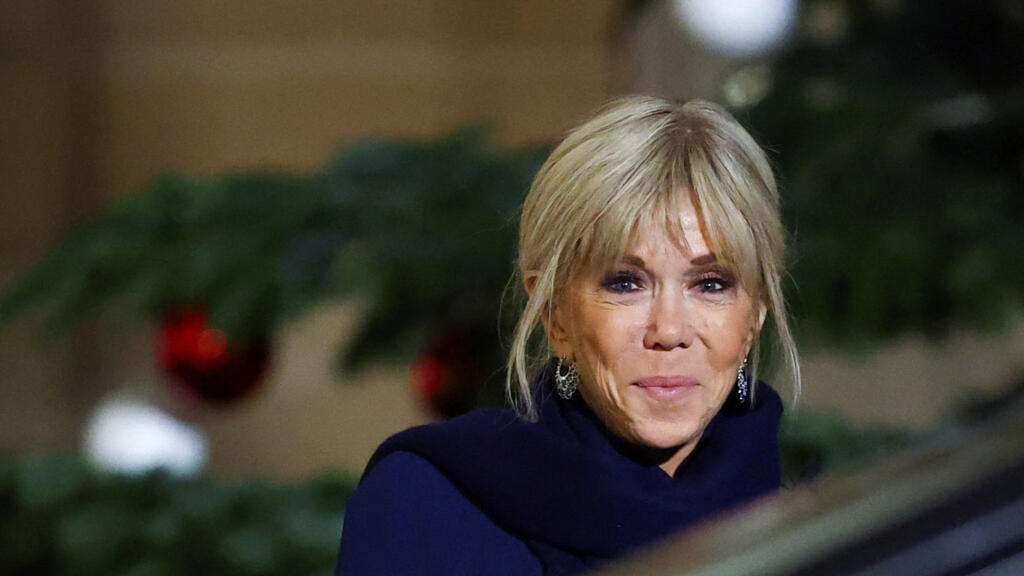

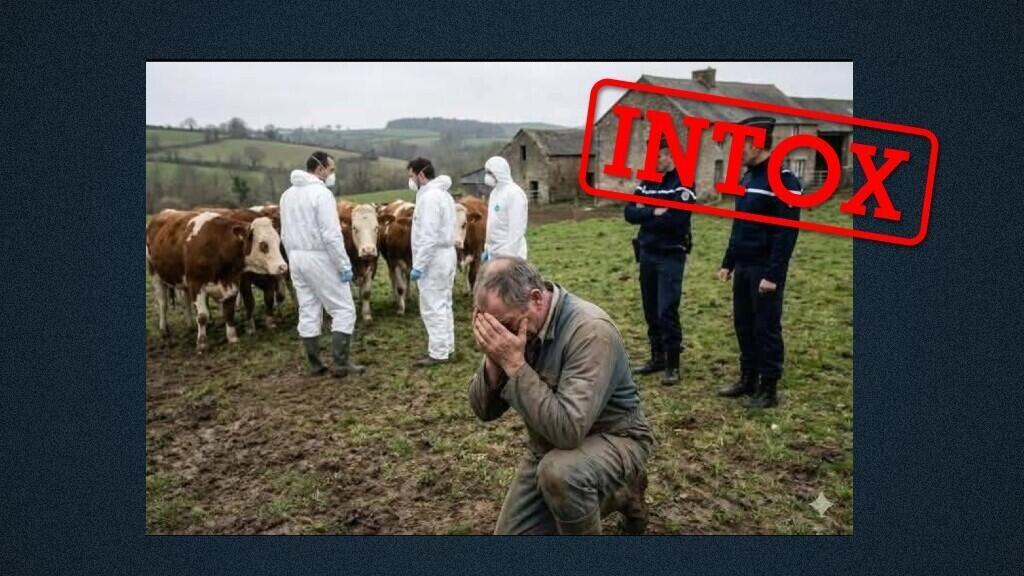

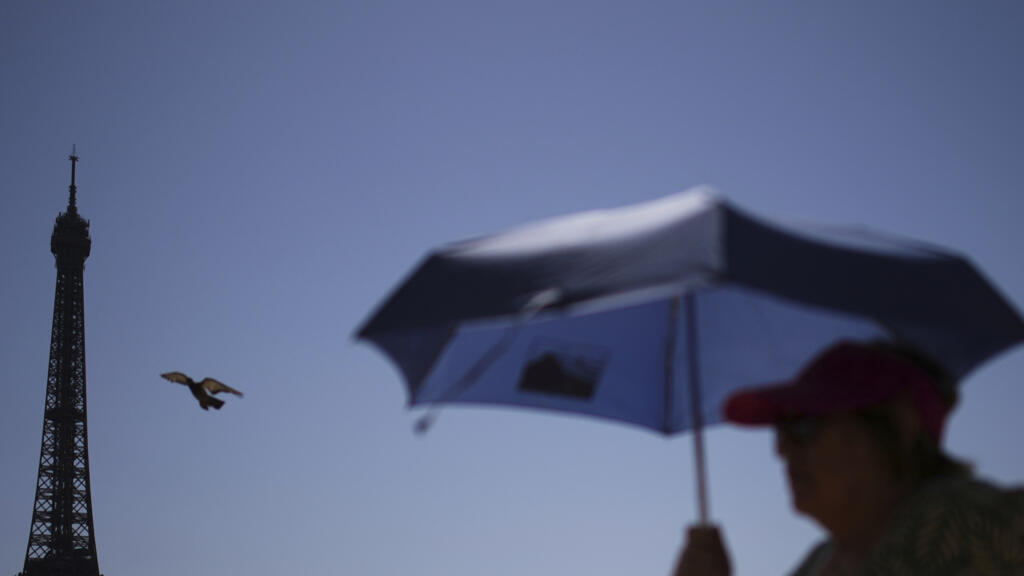



© Benoit Tessier/Reuters
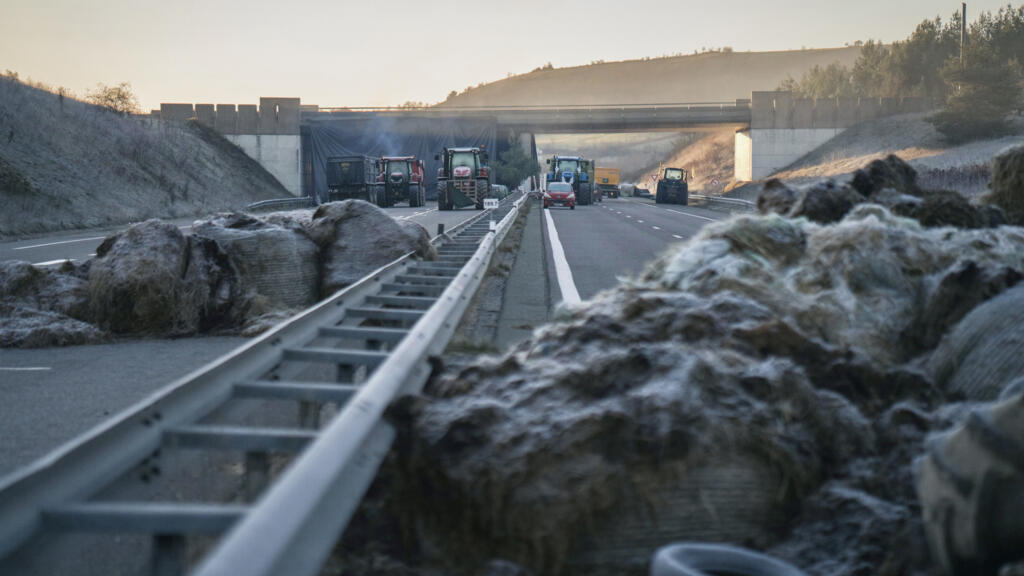

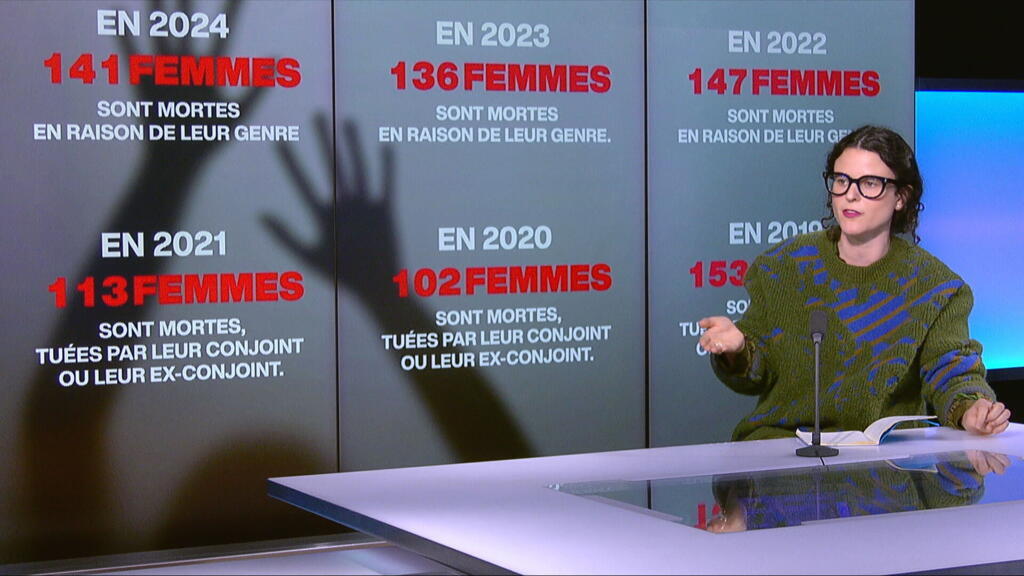

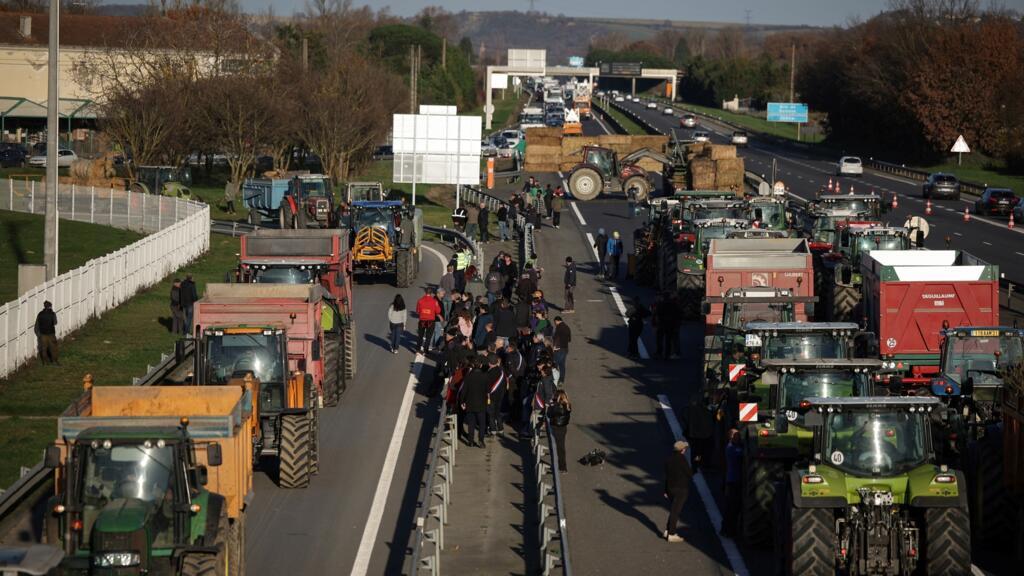

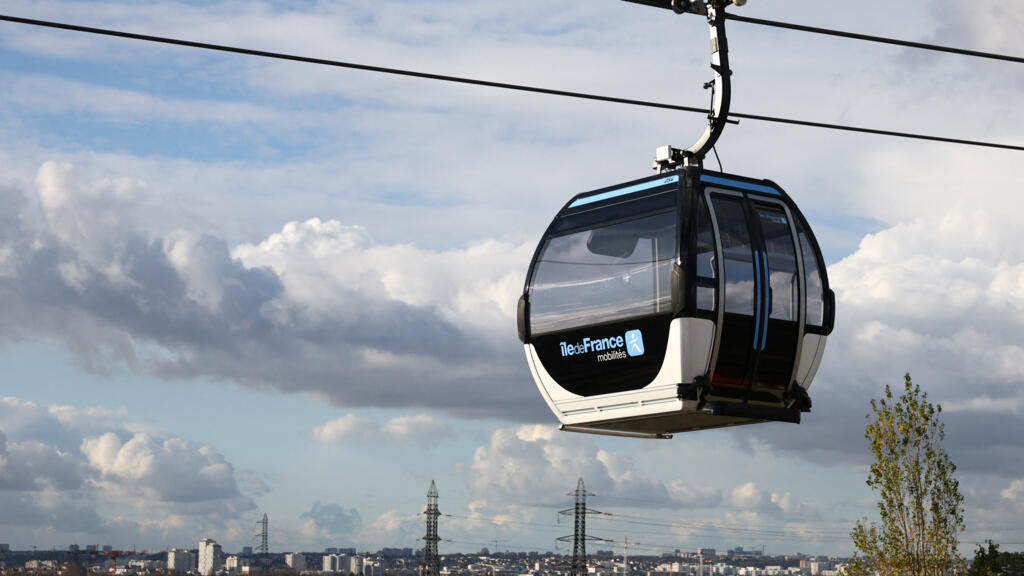

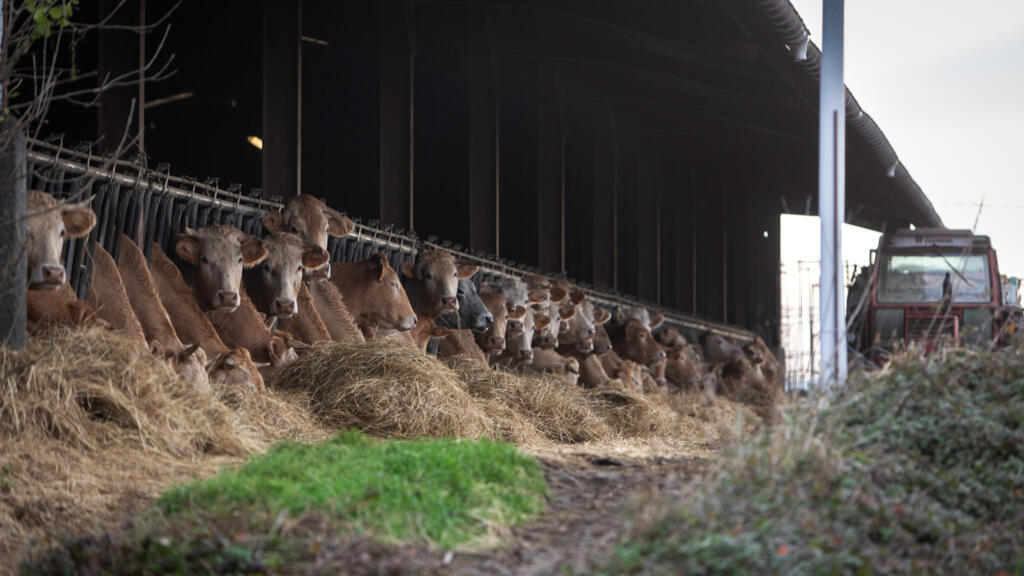

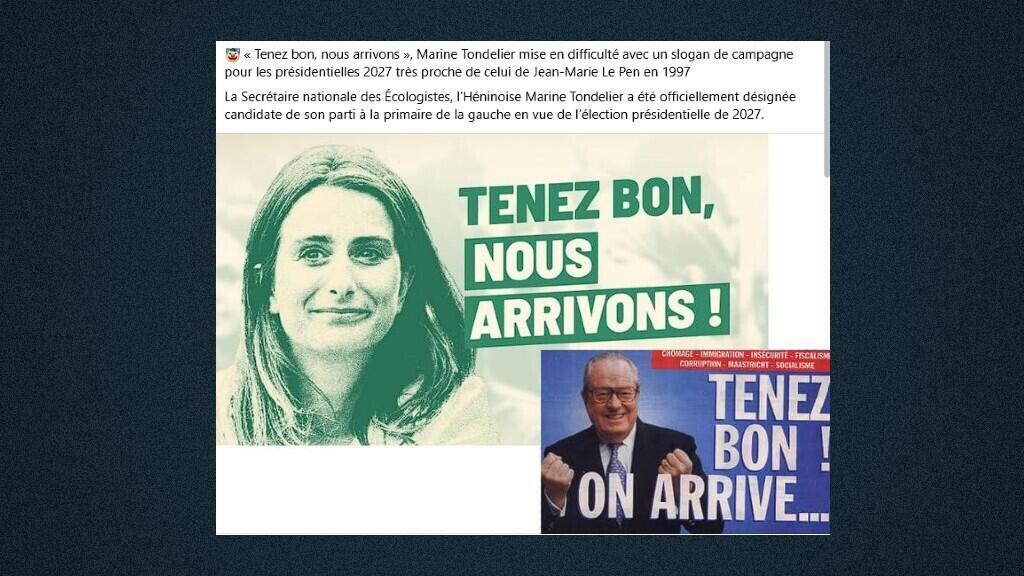

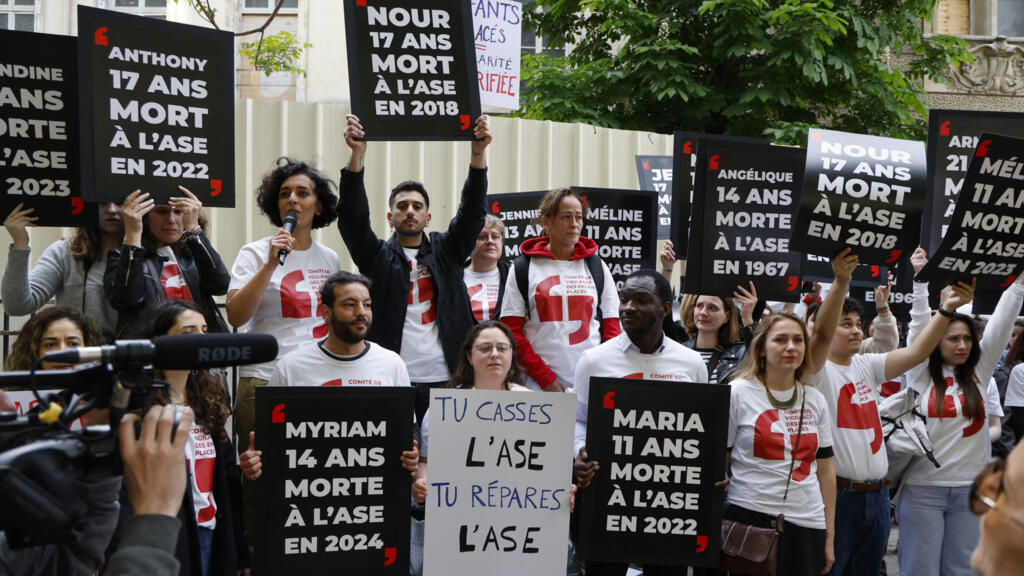



In 2025, external financial support for Ukraine is expected to decline to its lowest level since the start of the full-scale Russian war, according to researchers from the Ukraine Support Tracker project of the Kiel Institute. Ukrainian civilians are paying the highest price for this decline.
According to the UN Human Rights Monitoring Mission in Ukraine, the number of civilian casualties from long-range weapons in Ukraine increased by 26% in 2025, while the number of injured civilians rose by 75%.
For example, in Kyiv, the number of civilian casualties in the first ten months of 2025 was nearly four times higher than for the entire year of 2024. Other major cities, such as Dnipro and Zaporizhzhia, also saw significant increases in civilian casualties.
Military assistance declined sharply over the summer of 2025, a trend that continued through September and October.
At the current pace, European funds alone are insufficient to fully compensate for the absence of US military aid this year.
Although annual allocations averaged approximately €41.6 billion in 2022–2024 (including Europe, the US, and other donors), in 2025, only €32.5 billion was allocated. To reach previous levels, allies would need to provide an additional €9.1 billion by the end of the year.
By October, internal disparities within Europe also grew. France, Germany, and the UK sharply increased their military allocations compared to 2022–2024: Germany nearly tripled its contributions, while France and the UK more than doubled theirs.
Even so, as a percentage of 2021 GDP, all three countries lag significantly behind leading Scandinavian donors, Denmark, Finland, Norway, and Sweden.
The contrast is even stronger with Italy and Spain, as neither country increased its military allocations in 2025. Italy reduced its already low support by 15% compared to 2022–2024, while Spain provided no new military aid this year.
At the same time, Rome became the first European capital to propose leaving Ukraine without weapons during “peace talks” that have yielded no results after a year of diplomatic efforts by US President Donald Trump.
Italy said it would not participate in the PURL program, which purchases US-made weapons for Ukraine. The most important of them is Patriot air missile systems.
This program is critically important for Kyiv as it is effectively the only formal mechanism for obtaining weapons to counter Putin’s 600,000-strong army in Ukraine, and air-defense systems ahead of winter terror attacks, as US President Donald Trump's administration abandoned military assistance for Kyiv.
This limited participation has significantly weakened overall European support for Ukraine.
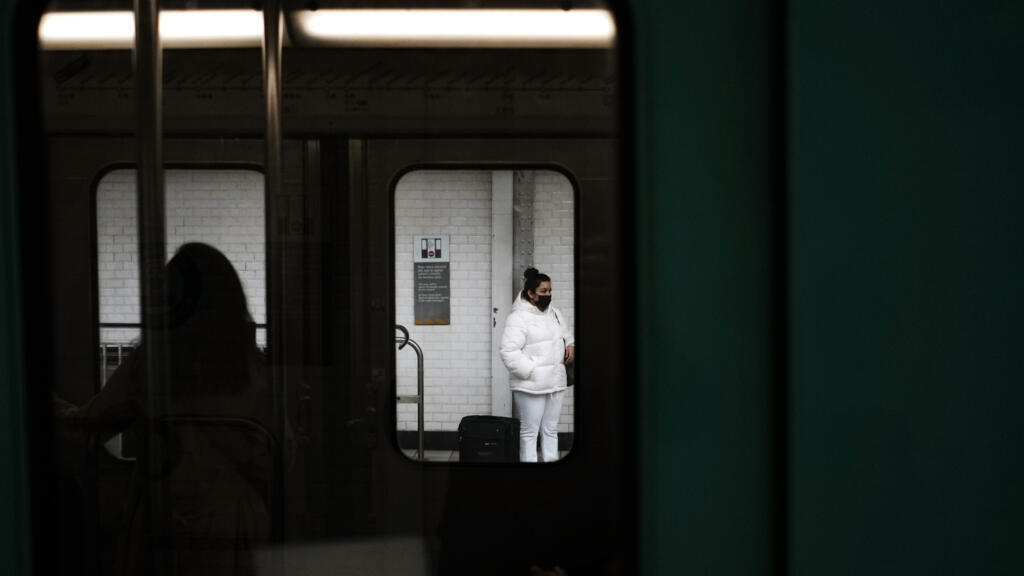

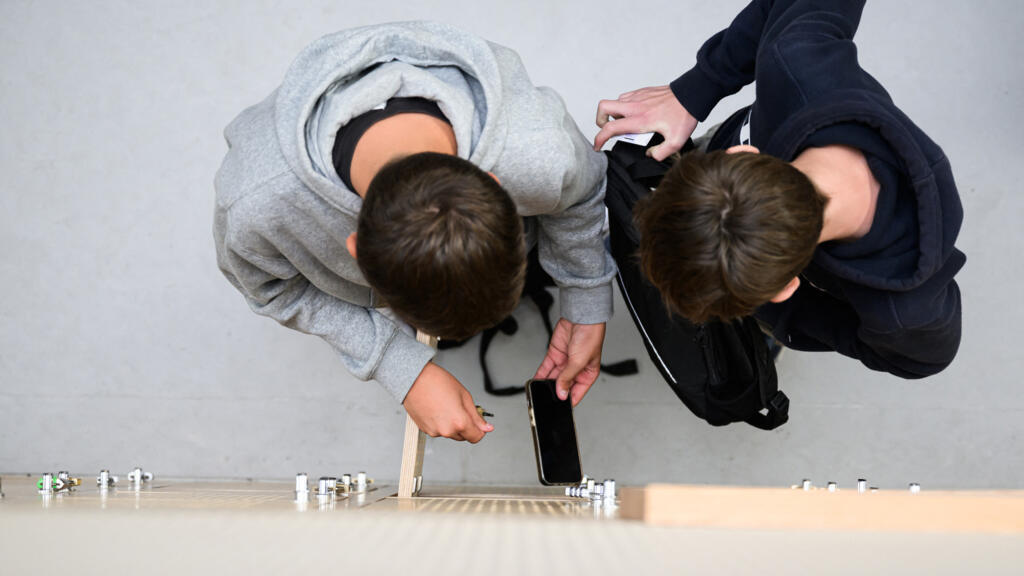

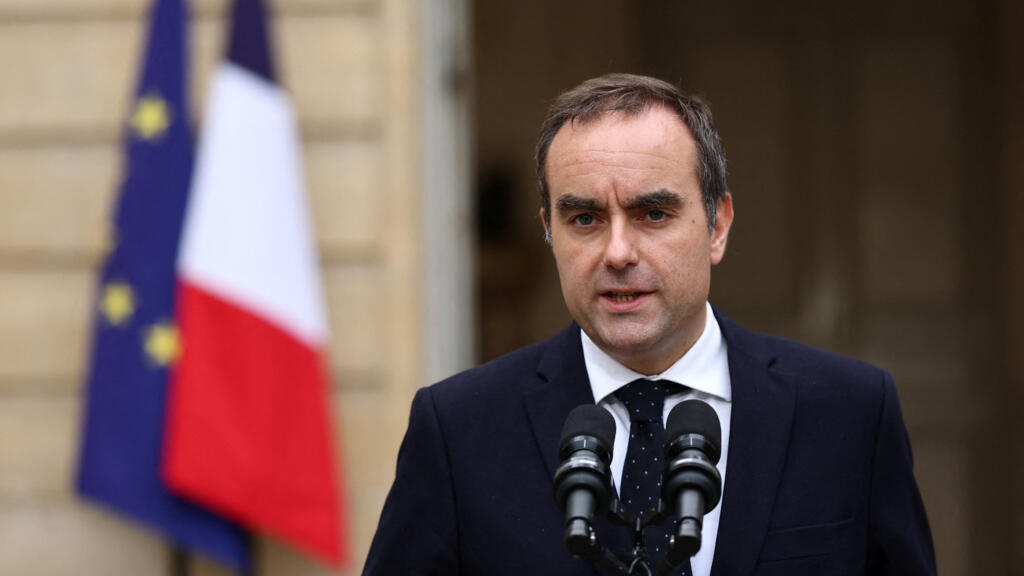



© Dimitar Dilkoff/Agence France-Presse — Getty Images


© Gonzalo Fuentes/Reuters


© Chris J Ratcliffe/Agence France-Presse — Getty Images


© Nelson Almeida/Agence France-Presse — Getty Images
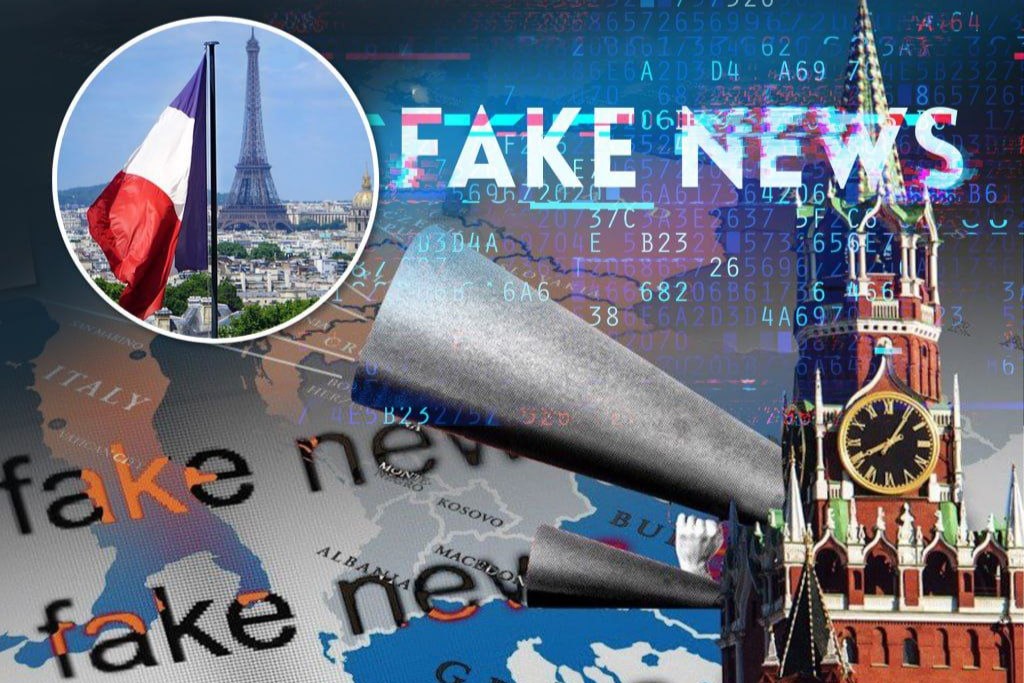

Ukrainian analysts say Russian disinformation activity in France has surged, with more than 200 new fake media websites uncovered this year.
Russia has repeatedly used fake news networks to meddle in political debates across the West, especially when elections draw closer. The new activity in France marks another attempt to shape the environment in which voters form their views, rather than a one-off operation.
Over 140 of the identified sites imitate well-known French outlets and twist real reporting to promote Kremlin-friendly themes, according to the Center for Countering Disinformation (CCD).
The Ukrainian watchdog links the network to “Storm-1516,” also known as Doppelgänger, a long-running influence operation tied to American-born propagandist John Mark Dougan, who has lived in Moscow since 2016. Researchers say Dougan also runs a similar CopyCop network that mirrors the same tactics.
The sites publish large volumes of AI-generated articles written to resemble local French reporting. Analysts warn that this helps false stories blend into online conversations, giving them a veneer of credibility.
Since October, the volume of posts produced by the network has jumped sharply.
The goal, the CCD says, is to undermine public trust in French institutions and damage President Emmanuel Macron ahead of the 2026 municipal elections.
Euronews recently documented how the network spreads fabricated claims, including a fake IQ test supposedly linked to Macron and circulated by pro-Russian accounts and a sham outlet mimicking French right-wing media outlet Fdesouche.
Recorded Future researchers told Euronews that many of the counterfeit sites lift genuine local stories but add pro-Kremlin lines or exaggerate events. Examples include altered coverage of the resignation of Saint-Étienne’s former mayor, where a fake outlet inserted praise for Russian President Vladimir Putin.
Reporters Without Borders has tracked at least 85 active sites tied to the wider operation, noting that they have pushed thousands of articles since early autumn.
French media experts warn that the activity has accelerated as the 2026 vote approaches, mirroring patterns seen during Germany’s snap elections earlier this year.
CCD says the trend is a warning for France and the EU. Without stronger digital defenses and broader media literacy efforts, they argue, elections across the bloc will remain exposed to coordinated campaigns designed to influence public opinion.
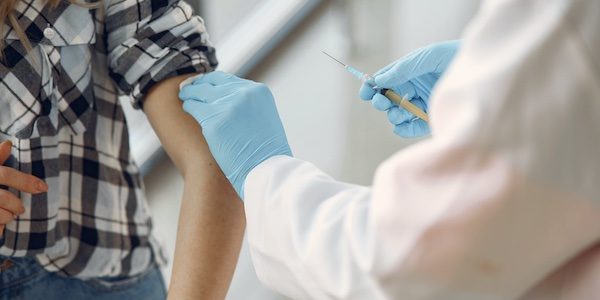

L’organisme français Epi-phare, créé par l’Agence nationale de sécurité du médicament et la Caisse nationale de l’assurance maladie, a suivi pendant 4 ans près de 29 millions de français âgés de 18 à 59 ans.
Les résultats de cette étude, publiée dans la revue scientifique Jama Network Open, montrent que les personnes vaccinées avec un vaccin anti-covid à ARNm – comme ceux de Moderna et Pfizer – ne courent pas plus de risques de décès (de toute cause) que les personnes non-vaccinées.
[L'article Une vaste étude française conclut que les vaccins anti-Covid n’entraînent aucune hausse de la mortalité a d'abord été publié dans InfoBref.]


© Matthew Abbott for The New York Times


© Pool photo by Sarah Meyssonnier


© Jean-Francois Monier/Agence France-Presse — Getty Images


© Ann Wang/Reuters


© Dmitry Kostyukov for The New York Times


© Thomas Padilla/Agence France-Presse — Getty Images
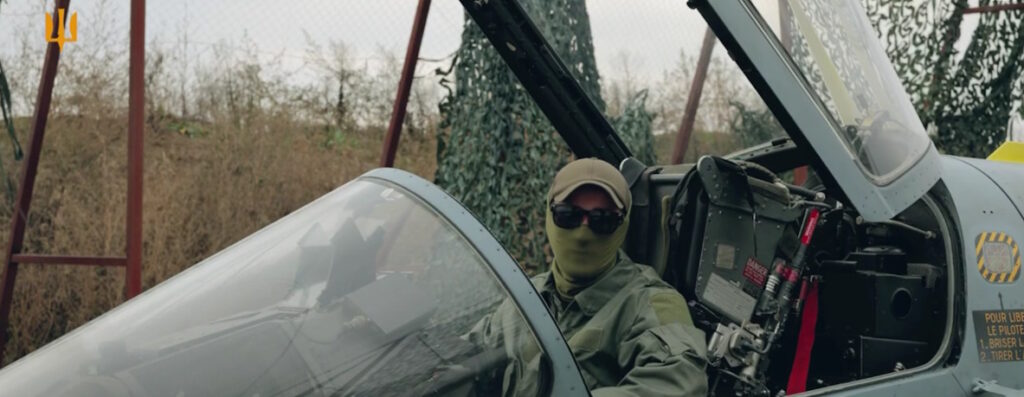

The Ukrainian Air Forces have released a video in which pilots and technicians provide a detailed look at the operation of French Mirage 2000 fighters. The aircraft’s Magic 2 missile has proven extremely effective, with nearly a 100% success rate, they report.
The filming crew captured the jet during a real combat mission. Ukrainian pilots and forward teams constantly have to change airfields, as the Russian military continually attempts to destroy the Defense Forces' equipment. Combat operations often take place under missile attacks and drone strikes.
“Mirage aircraft in the Ukrainian Air Force are rare, so encountering one at an operational airfield, especially during an active combat mission, is a real stroke of luck for our crew,” says the footage.
Ukrainian pilots received training in France on how to operate these advanced jets.
“For about six months, we trained to fly and use weapons on the two-seater Mirage 2000. Then we transitioned to the single-seat version, the one I’m currently flying,” the pilot said.
The aircraft’s effectiveness against Russian drones and missiles reaches 98%, which the pilot called “impressive numbers.”
He emphasized that the Air Force needs more aircraft and modern weaponry to counter the Russian offensive.
“We need weapons that strike a balance between efficiency and cost, so we can deal with the volume of aerial threats we currently face,” he added.
“If I could switch to a better aircraft, I would probably choose the Rafale. Since it’s also French, transitioning would be faster than switching to jets from other countries. The Rafale can also carry Meteor missiles, which are long-range,” the pilot said.
He stated that Ukrainian pilots are prepared to execute their missions at any time, but they require support from their partners in supplying the necessary weapons and equipment.


© Aurelien Morissard/Associated Press
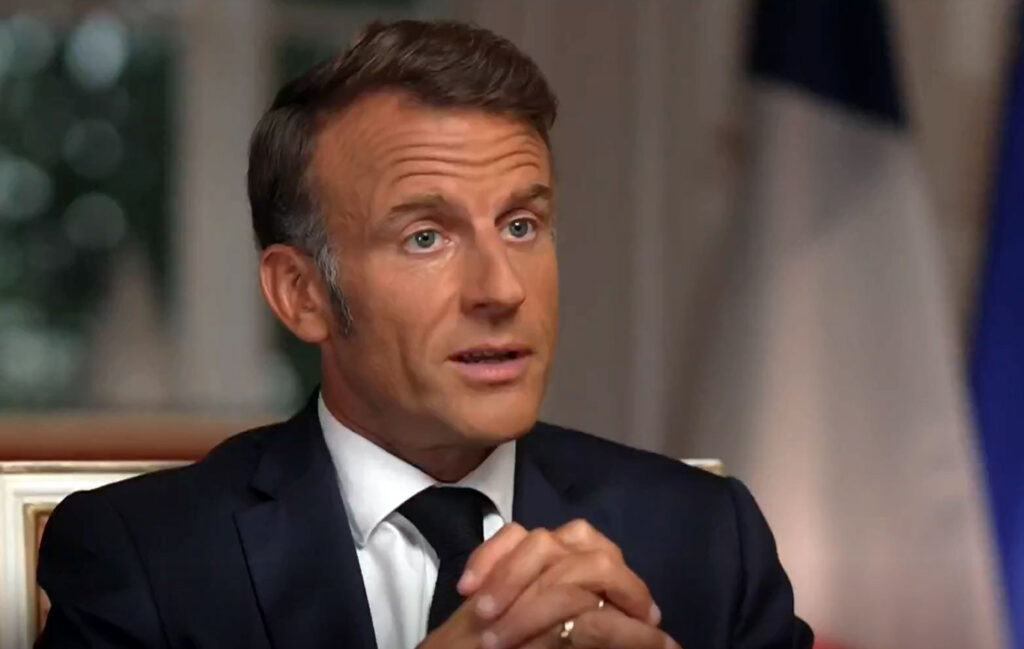

France and Britain will establish a working group on 26 November to prepare security guarantees for Ukraine within the "coalition of the resolute," with participation from the United States, NATO, and Türkiye, reports European Pravda.
French President Emmanuel Macron announced the initiative following an online meeting of the coalition on 25 November. "We decided to launch a working group tomorrow, led by France and Britain, with close participation from Türkiye, which plays a key role in the maritime plan. And for the first time – with the involvement of the United States of America," Macron said .
The French president said the coming days would allow participants "to very precisely define each one's contributions and finally finalize these security guarantees" for Ukraine. He emphasized that "this is important for the United States, this is important for negotiations on a reliable peace, and also to maintain pressure on Russia."
Macron expressed conviction that preventing any new aggression requires, above all, a strong Ukrainian army. "Discussions in Geneva showed that there should be no restrictions on the Ukrainian army. We have planned everything necessary for this. And then, in addition to this, there must be 'assurance forces,' which are the second echelon, and they will strengthen this Ukrainian army," he said.
The 25 November coalition meeting resulted in agreement to advance solutions in the coming days on two fronts: frozen Russian assets and security guarantees for Ukraine.
Meanwhile, US President Donald Trump declared that "we are already very close to a deal." Trump's statement came after US Army Secretary Dan Driscoll held a meeting with a Russian delegation in Abu Dhabi, the capital of the United Arab Emirates.
The US and Ukraine developed a new 19-point peace agreement during negotiations in Geneva, though the most politically sensitive issues were left to the discretion of both countries' presidents. White House spokesperson Carolyn Levitt said the US had made "significant progress" toward concluding a peace agreement, though several "thorny but not insurmountable details" remain.


© Pool photo by Ludovic Marin
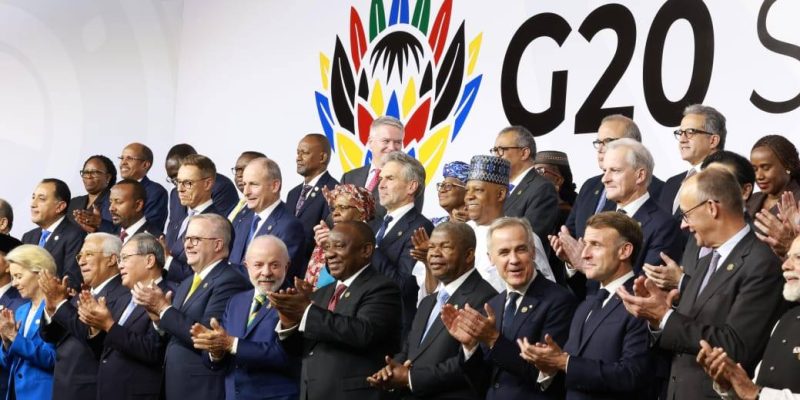

Lors du premier sommet des dirigeants du G20 sur le continent africain, en Afrique du Sud, les pays ayant les plus grandes économies mondiales, dont le Canada, ont adopté une déclaration commune en faveur:
Parmi les absents:
Les États-Unis doivent accueillir le prochain sommet en décembre 2026.
[L'article Les dirigeants du G20 se sont mis d’accord en l’absence des États-Unis a d'abord été publié dans InfoBref.]
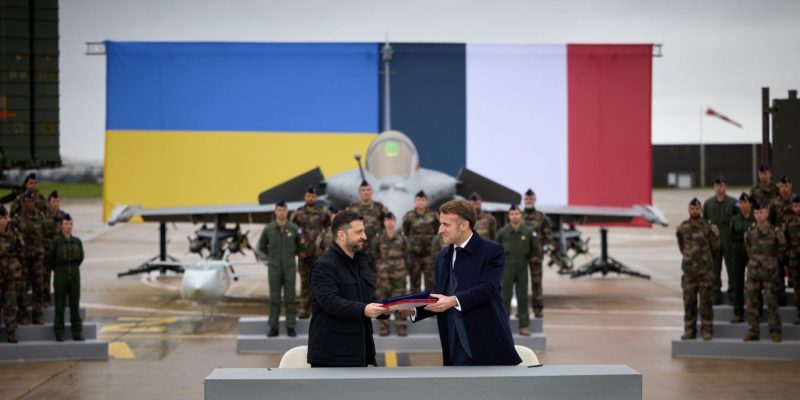

Volodymyr Zelensky et le président français Emmanuel Macron ont signé hier à Paris une «déclaration d’intention» qu’ils ont qualifiée d’«historique».
L’accord porte sur l’achat par l’Ukraine d’équipements de défense français, dont:
Ces équipements ne seraient pas livrés prochainement.
Ils serviraient à «régénérer» l’armée ukrainienne après la guerre pour qu’elle soit «en capacité de dissuader toute nouvelle incursion», a expliqué Macron.
L’Ukraine et la France ont par ailleurs renforcé leur coopération dans plusieurs secteurs, dont la défense, l’énergie et les transports.
[L'article L’Ukraine va acheter 100 avions de combat à la France a d'abord été publié dans InfoBref.]
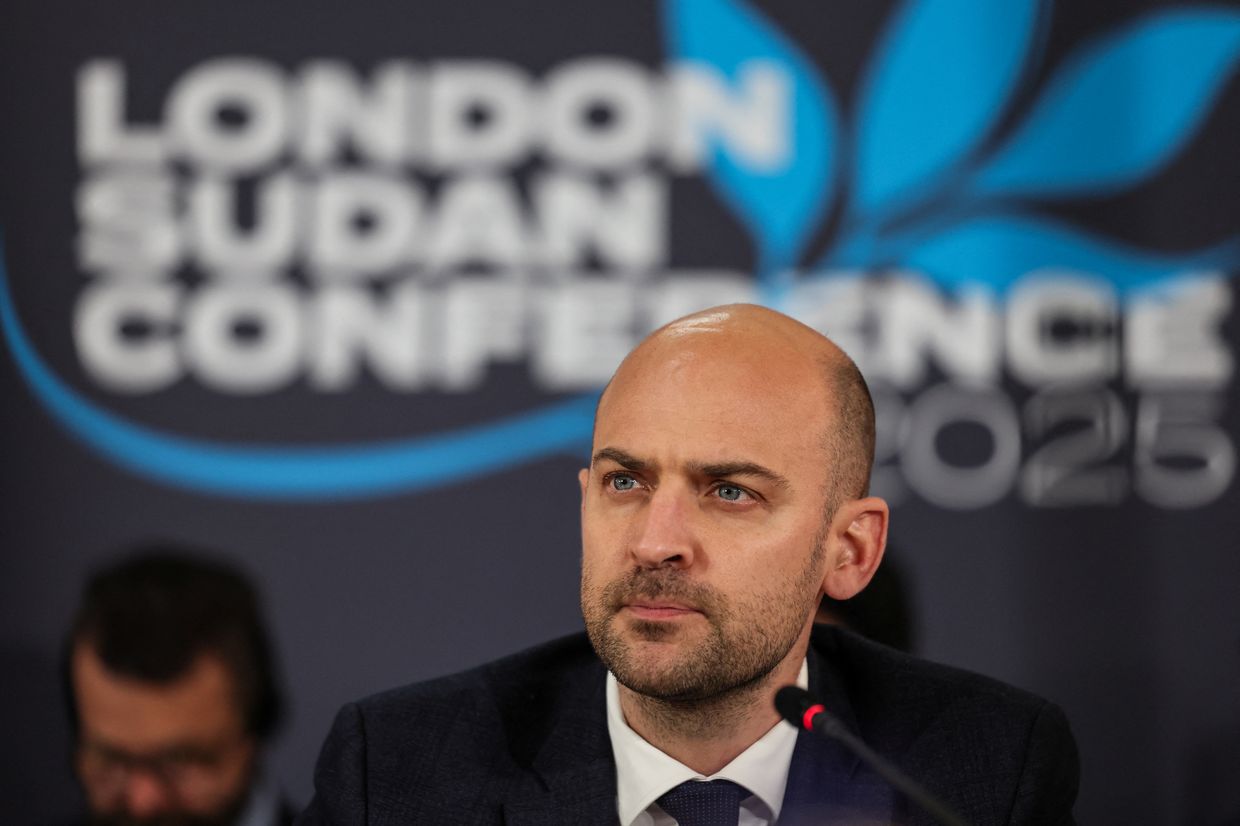

The EU will introduce the "toughest sanctions... imposed (on Russia) in the last three years" in coordination with U.S. senators, French Foreign Minister Jean-Noel Barrot said in a television interview on July 7.
"(Russian President Vladimir) Putin is no longer advancing on the front and is now limited to shelling residential areas with drones and missiles. This is leading to numerous casualties among the civilian population. This must stop," Barrot said.
U.S. Senator Lindsey Graham said on June 29 that U.S. President Donald Trump was ready for the Senate to vote on a bill to impose new sanctions on Russia. The Republican senator has repeatedly called for implementing additional sanctions against Moscow.
Barrot noted the EU is planning to impose the strongest sanctions against Russia that the bloc has introduced since 2022.
"This (war) cannot continue; it must stop. To achieve this, in coordination with American senators, Europe is preparing to introduce, based on French proposals, the toughest sanctions we have imposed in the last three years," he said.
"They will directly deplete the resources that allow Vladimir Putin to continue his war," Barrot added.
In the U.S., senators have been working on a sanctions bill, with Graham saying voting on a bill is expected to begin following the end of the July congressional break.
Graham, earlier on July 7, said he expects "the Senate will move the bipartisan Russian sanctions bill that will allow tariffs and sanctions to be placed on countries who prop up Putin’s war machine and do not help Ukraine."
The bill led by Graham has been in the works for several months as the White House has failed attempts to broker a peace deal between Ukraine and Russia.
"Ukraine has said yes to ceasefires and to any and all meeting requests while Putin continues to defy peace efforts. It is now time to put more tools in President Trump’s toolbox in order to end the war," he said.
Russia has relied on its partners, including Belarus, China, and Iran, for trade and to bypass Western sanctions meant to inhibit Moscow's ability to continue its war against Ukraine.
 The Kyiv IndependentThe Kyiv Independent news desk
The Kyiv IndependentThe Kyiv Independent news desk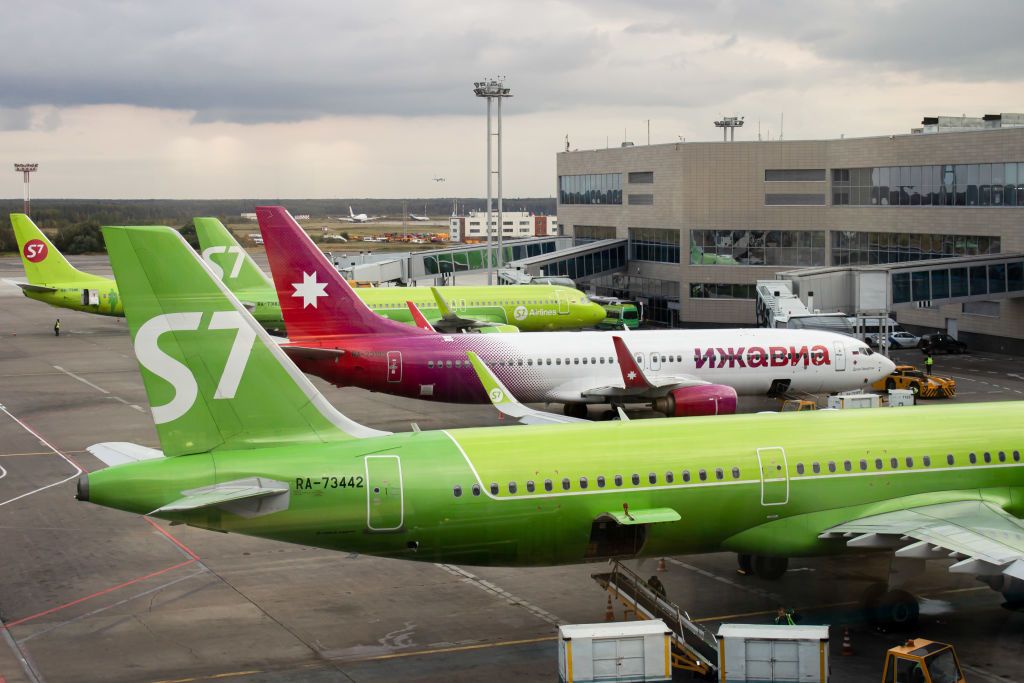
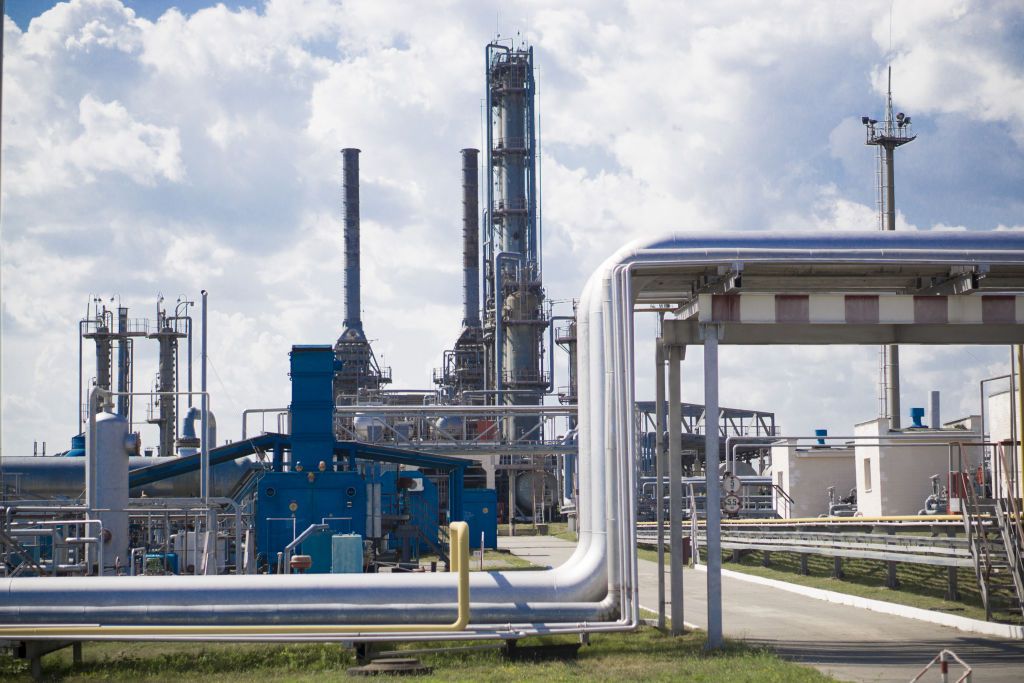

BlackRock, a U.S. investment firm, suspended work on a multibillion-dollar Ukraine recovery fund following U.S. President Donald Trump's election victory, prompting France to work on a replacement, Bloomberg reported on July 5.
The plan nearly secured the initial support of institutions backed by the governments of Germany, Italy, and Poland, people familiar with the matter told Bloomberg.
Kyiv has sought to secure investment in Ukraine's reconstruction as Russia's war continues to destroy infrastructure across the country.
BlackRock halted its search for institutional investors in January, causing the planned funding that sought to secure $500 million from governments, development grants, and investment banks, and another $2 billion from private investors, to fall through.
The investment firm halted talks with institutional investors in January due to a lack of interest amid perceived uncertainty in Ukraine.
The fund was set to be unveiled by BlackRock at the upcoming Ukraine Recovery Conference on July 10-11 in Rome, Bloomberg reported.
A spokesperson for BlackRock said the investment firm completed advisory work for the recovery fund pro bono in 2024 and no longer has "any active mandate."
France is working on a proposal to replace the recovery fund led by BlackRock, people familiar with the matter told Bloomberg, adding that it remains uncertain how effective the plan will be without Washington's backing.
President Volodymyr Zelensky and Italian Prime Minister Giorgia Meloni are expected to attend the Ukraine Recovery Conference next week.
Despite a partial rebound from a 30% economic slump in 2022, foreign investment in Ukraine remains underwhelming.
 The Kyiv IndependentDominic Culverwell
The Kyiv IndependentDominic Culverwell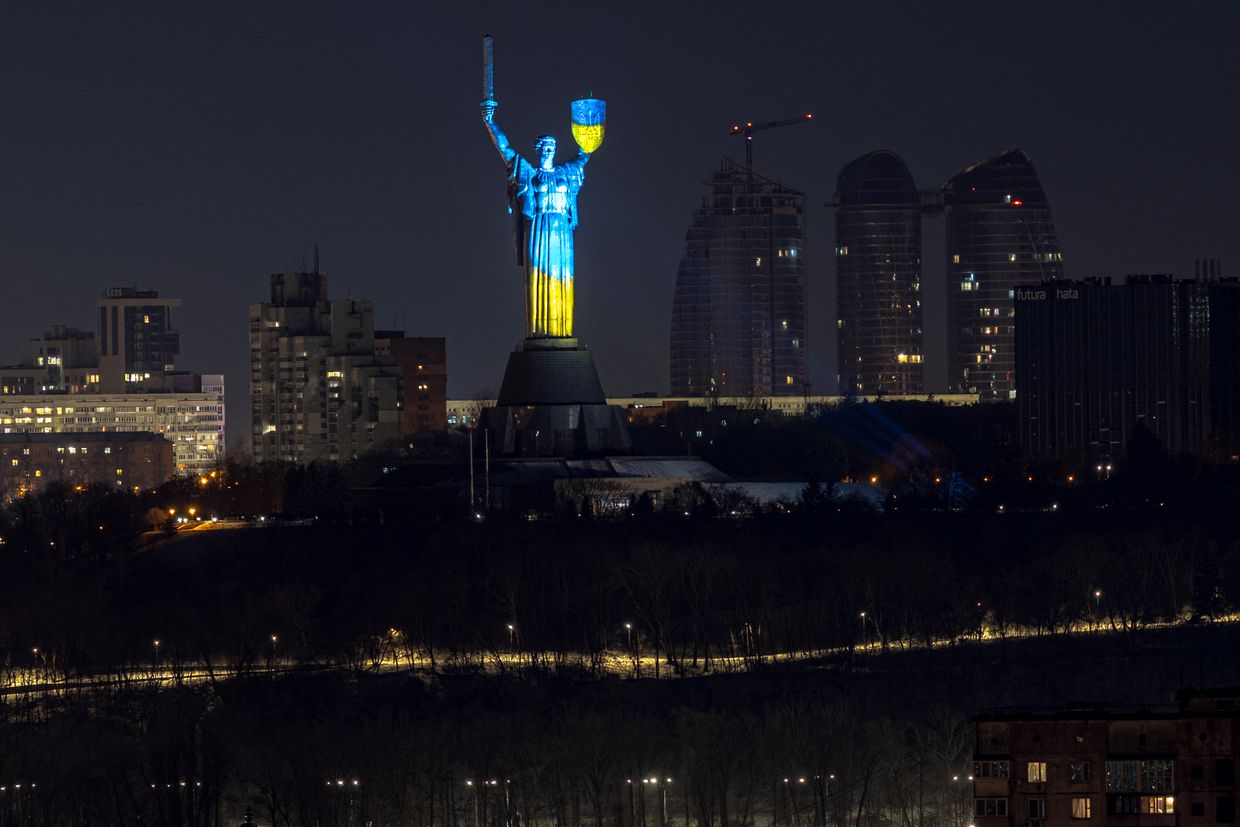
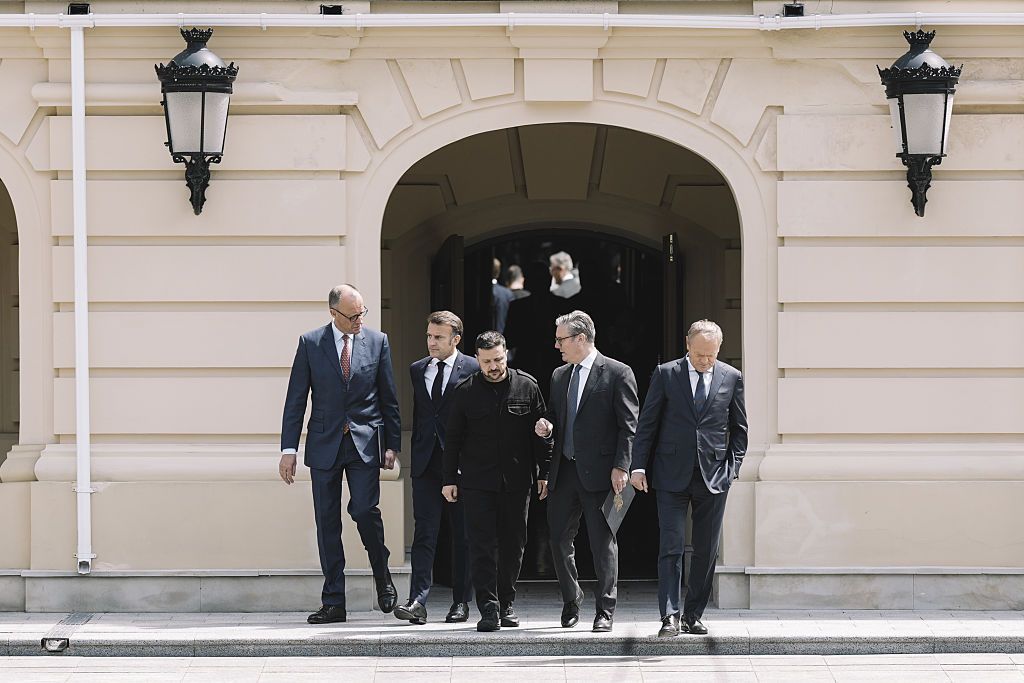

The British and French-led "coalition of the willing" is set to meet in the U.K. next week, Politico reported on July 4.
"On the agenda, there's how to maintain Ukraine in a capacity to fight, how to increase pressure on Russia, and how to continue the work on the next steps," an unnamed French official told Politico.
As Washington's intensified efforts to broker a ceasefire in Russia's war against Ukraine failed, two rounds of largely inconclusive peace talks between Kyiv and Moscow took place in Turkey.
Following various failed attempts to obtain a ceasefire or peace deal, the coalition will meet again on July 10.
The French official told Politico that the priorities of the "coalition of the willing" have not changed, and will continue to focus on Ukraine's military needs.
The meeting will be led by U.K. Prime Minister Keir Starmer and French President Emmanuel Macron, with President Volodymyr Zelensky and various leaders joining virtually, the official said.
The "coalition of the willing" has met repeatedly to determine potential security guarantees and a peacekeeping force for Ukraine. Leaders of 31 nations met in Paris on March 27 at a summit for the coalition.
Several countries, including France and the U.K., which lead the coalition, have pledged to send troops on the ground to enforce a potential ceasefire.
 The Kyiv IndependentKateryna Hodunova
The Kyiv IndependentKateryna Hodunova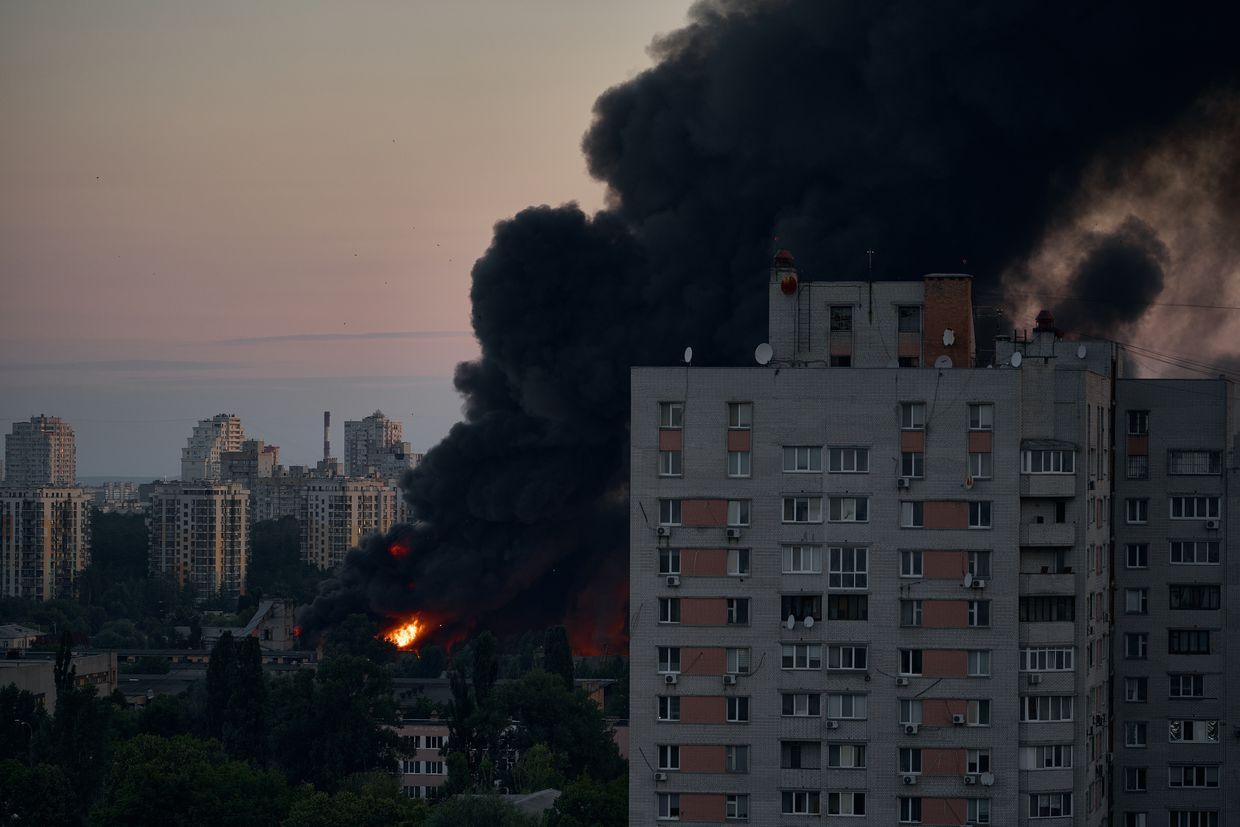
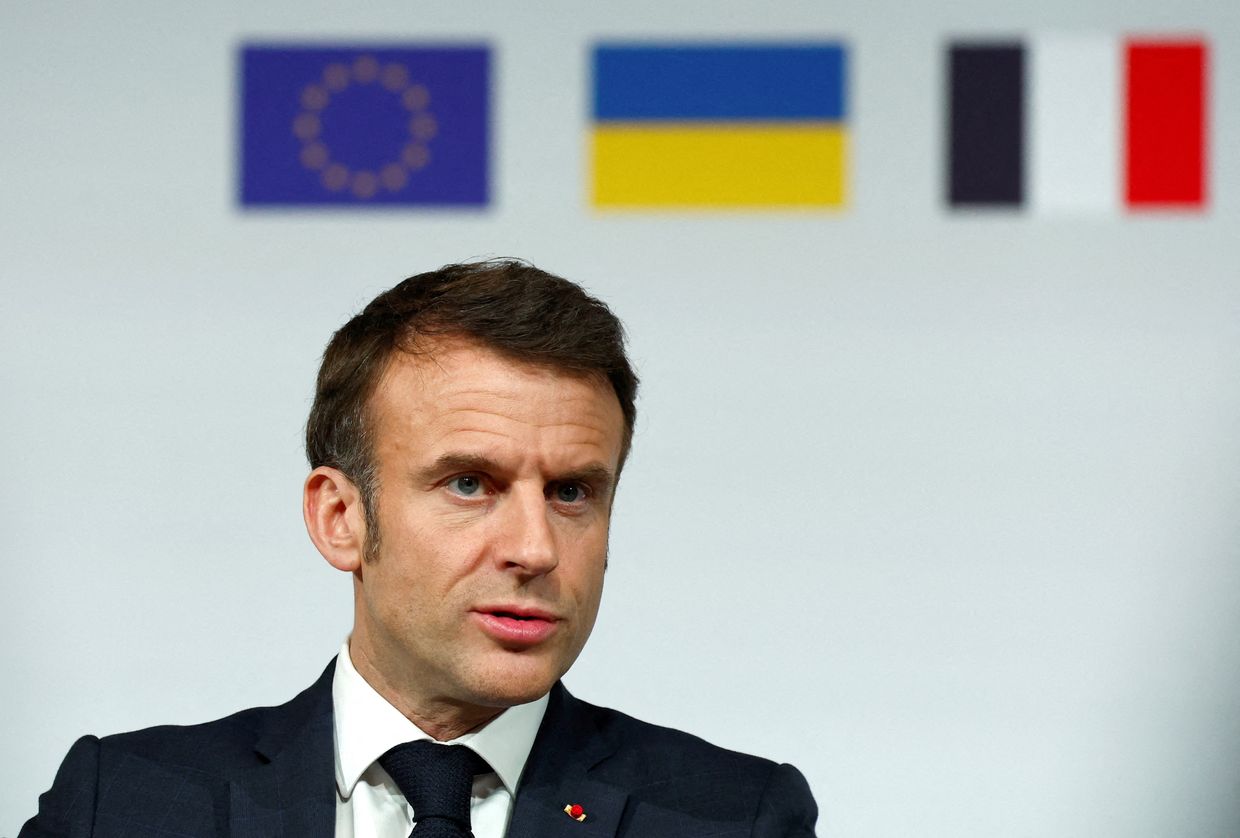

Editor's note: The story was updated as the President's Office confirmed that following the call with Vladimir Putin, Emmanuel Macron also called Volodymyr Zelensky.
French President Emmanuel Macron and his Russian counterpart Vladimir Putin held a call on July 1 for the first time since 2022, discussing Russia's war against Ukraine and the conflict in the Middle East, the Kremlin's press service reported.
The conversation between the two leaders took place as the Russian army continues to advance along the front line, trying to gain a foothold in Sumy Oblast and enter Dnipropetrovsk Oblast.
Moscow has repeatedly rejected the U.S.-backed ceasefire proposal, stalling peace talks with Ukraine.
Following the call with Putin, Macron also called Zelensky to discuss his conversation with the Russian president, a source in the President's Office told the Kyiv Independent.
The call between Zelensky and Macron was "constructive," the source added. Putin's position remained unchanged: he does not show any willingness to end the war in Ukraine, according to the source.
The call between Putin and Macron lasted over two hours, BFM TV reported, citing the Elysee Palace.
During the conversation with Macron, Putin called Russian war "a direct consequence of the policy of Western powers" that "ignored Russia's security interests, created an anti-Russian bridgehead in Ukraine," the Kremlin said.
Macron, in turn, noted France's unwavering support for Ukraine's sovereignty and territorial integrity, Suspilne reported, citing the Elysee Palace.
The French president also called for "a ceasefire to be established as soon as possible and for negotiations to begin."
The leaders will continue to discuss Russia's war in Ukraine, according to the Elysee Palace.
The presidents also discussed the situation in the Middle East regarding the Iranian-Israeli conflict and the U.S. strikes on Iranian nuclear facilities.
Macron frequently called Putin in the first year of Russia's full-scale invasion of Ukraine. Their previous call took place in September 2022.
 The Kyiv IndependentOleg Sukhov
The Kyiv IndependentOleg Sukhov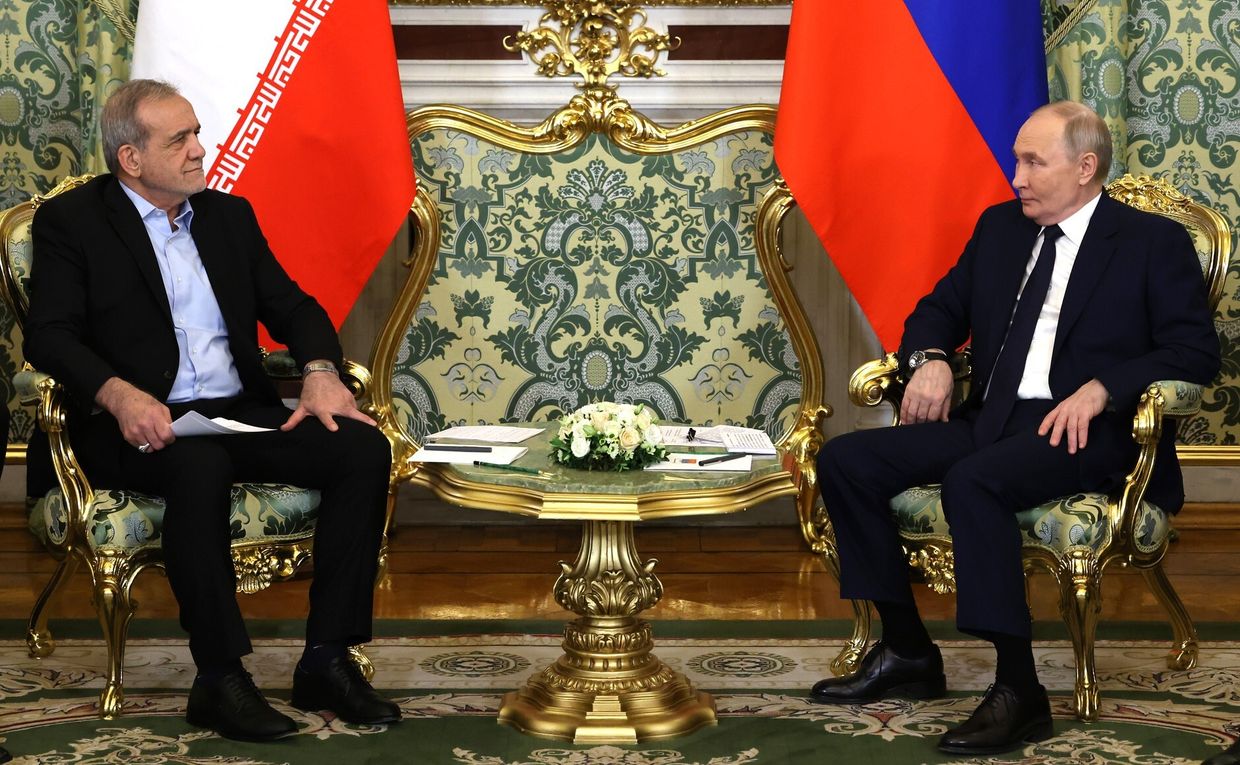
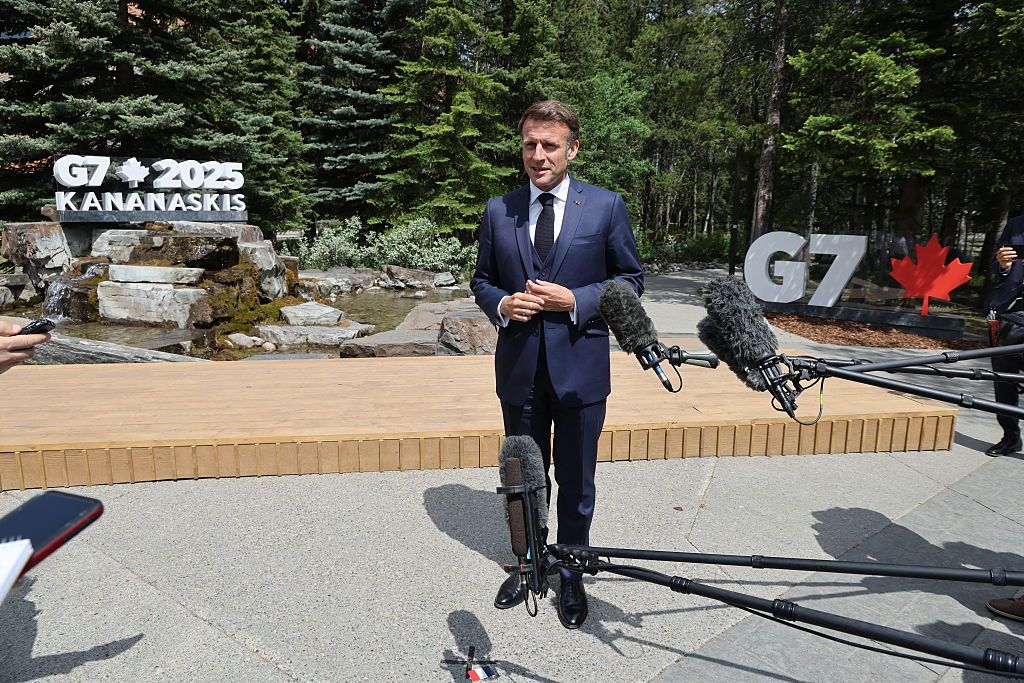

The European Union and its allies are ready to toughen sanctions on Russia, French President Emmanuel Macron said on the sidelines of the Group of Seven (G7) summit on June 17.
"With President (Volodymyr) Zelensky at the G7. We stand in solidarity with the Ukrainian people after last night’s massive Russian strikes," Macron said in a post to social media.
"We are determined to increase pressure on Russia to accept the immediate and unconditional ceasefire that Ukraine is ready for," he added.
Macron attended the G7 summit in Kananaskis, Canada, from June 15-17. Global leaders discussed a wide range of topics, including Russia's war against Ukraine.
As the G7 leaders met in Canada, Russia launched one of its worst drone and missile attacks on Kyiv since it began its full-scale war against Ukraine in February 2022, killing 16 people and injuring at least 134.
"The common position that is emerging is to say, 'We need to strengthen sanctions,'" CBC News reported, citing Macron.
Europe is proposing much tougher sanctions than the U.S. has imposed on Russia, Macron said, adding that the EU is in "very close co-ordination" with Canada, Japan, and the U.K.
Several countries, including Canada and the U.K., introduced additional sanctions on Russia as the G7 summit was ongoing.
Canada introduced a new military aid package for Ukraine in addition to its sanctions against Russia.
"In our view, this has changed the situation because it will allow us to bring Russia back to the negotiating table, as (U.S.) President (Donald) Trump has been demanding," Macron said, according to CBC News.
Zelensky attended the summit and met with various leaders, including Macron and Canadian Prime Minister Mark Carney.
Zelensky left the summit early, citing Russia's attack on Kyiv. The nearly nine-hour-long attack saw Moscow's forces launch large numbers of drones and missiles at Ukraine's capital.
Foreign Minister Andrii Sybiha condemned the attack, calling it a "massive and brutal strike" timed deliberately to coincide with the G7 summit.
Zelensky described the drone and missile assault as "one of the most horrifying attacks on Kyiv."
 The Kyiv IndependentKateryna Denisova
The Kyiv IndependentKateryna Denisova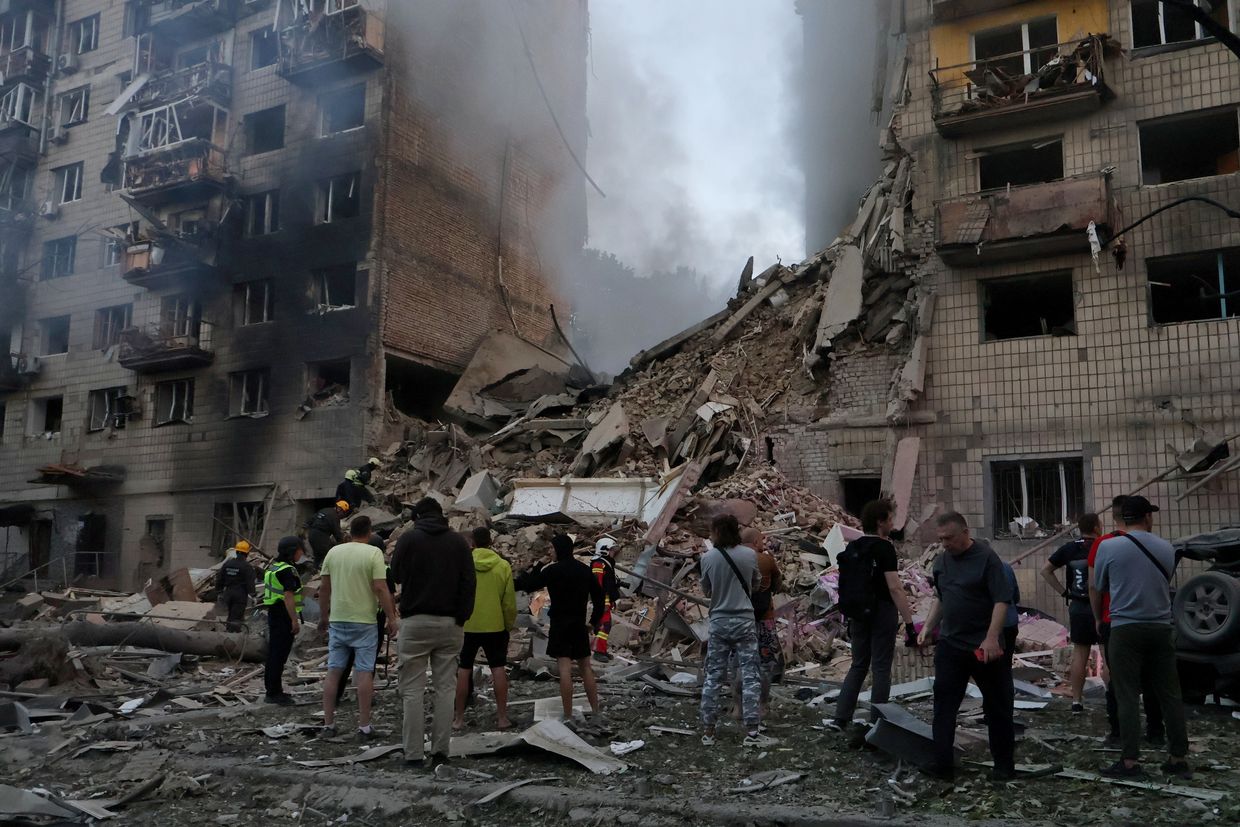
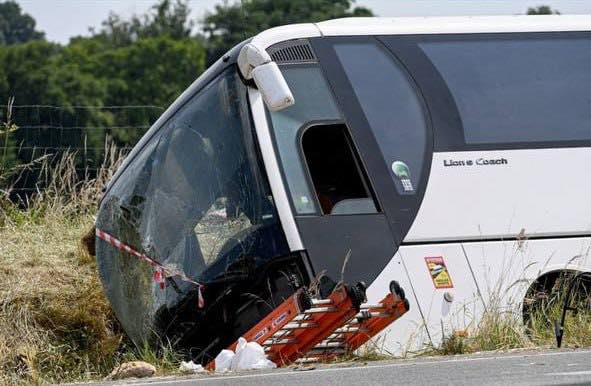

Nine Ukrainian students remain hospitalized following a deadly bus accident in France that killed three Ukrainian nationals and injured dozens more, Ukrainian officials confirmed on June 14.
The group, made up of students and teachers from Chernivtsi Oblast, was returning from an academic exchange when their bus veered off the road in the Sarthe department of France on June 13.
While en route to Paris, the bus veered off the road for reasons still under investigation and flipped into a ditch. In addition to the four fatalities, French media reported nine people were seriously injured and 18 sustained minor injuries.
According to Ruslan Zaparaniuk, governor of Chernivtsi Oblast, nine Ukrainian students remain hospitalized, though their conditions are stable. "All other people have received the necessary support, food, and temporary shelter and are now in safe locations," he wrote on Facebook.
Zaparaniuk noted that Ukraine's Embassy in France is organizing the logistics to help the children return home and is assisting parents wishing to travel to France to visit their hospitalized children.
Ukraine's Embassy in France said that a diplomatic team, led by Ambassador Vadym Omelchenko, traveled to the crash site and remains in Sarthe to support victims and coordinate with French authorities.
According to the embassy, two people injured in the crash remain in critical condition. All other victims are receiving medical treatment and support from Ukrainian and French teams.
President Volodymyr Zelensky expressed condolences in a June 13 statement, calling the accident "terrible news" and thanking French authorities for their solidarity and rapid response.
 The Kyiv IndependentLucy Pakhnyuk
The Kyiv IndependentLucy Pakhnyuk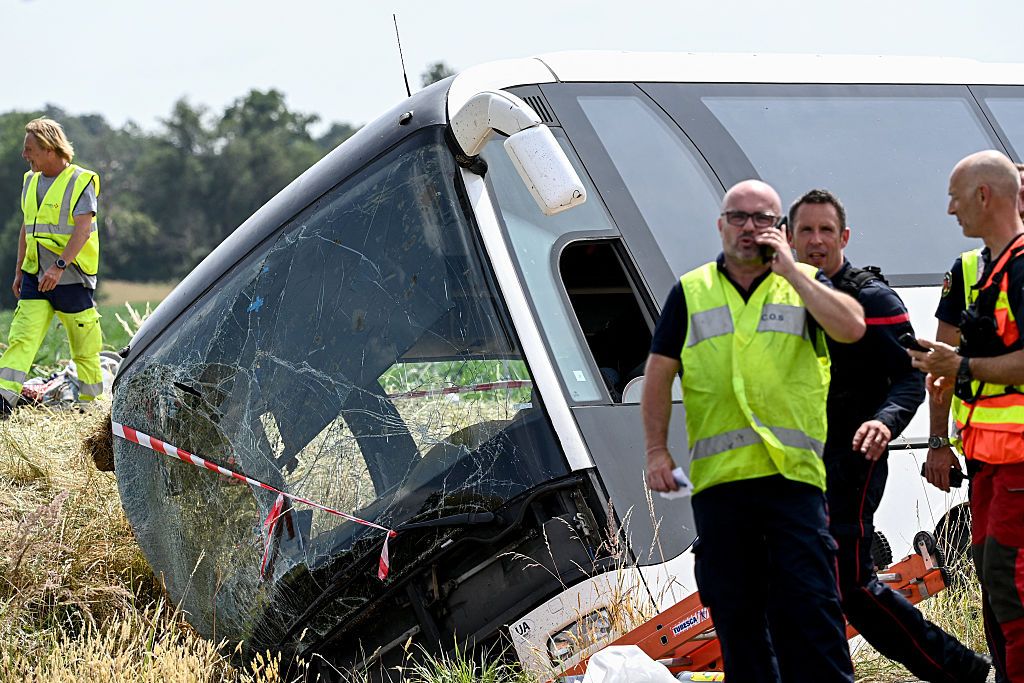


Three Ukrainian nationals were killed in a bus accident in France on June 13, President Volodymyr Zelensky confirmed in a statement on Telegram.
"Terrible news about the tragic bus accident in France," Zelensky wrote.
The accident occurred in the morning of June 13, near the Sarthe department of France. The bus was reportedly carrying Ukrainian nationals, including adults and children, who were returning from an educational exchange.
While en route to Paris, the bus lost control and flipped into a ditch.
Four adults were killed in total – three of whom were Ukrainian nationals. French media reported that nine people sustained serious injuries, while an additional 18 suffered minor injuries.
Zelensky added that Ukraine's Foreign Ministry promptly sent a team of diplomats and consuls, led by the ambassador to France, to assist survivors and support the victims’ families. The team is coordinating with French authorities and emergency services at the scene.
Foreign Minister Andrii Sybiha and Interior Minister Ihor Klymenko are providing regular updates on the victims' conditions and emerging details regarding the accident.
Zelensky thanked the French authorities, noting that "more than 50 emergency teams were deployed" in what he called "a true expression of French solidarity."
He also expressed his "condolences to all the families of the victims" and wished for a "speedy recovery of the injured children."
 The Kyiv IndependentMartin Fornusek
The Kyiv IndependentMartin Fornusek